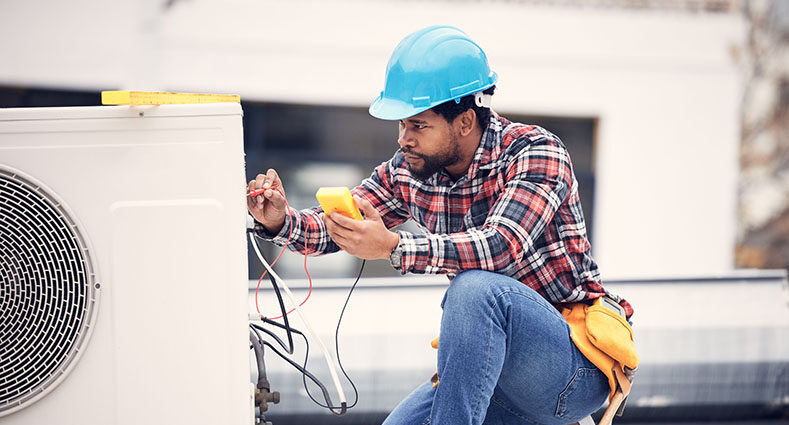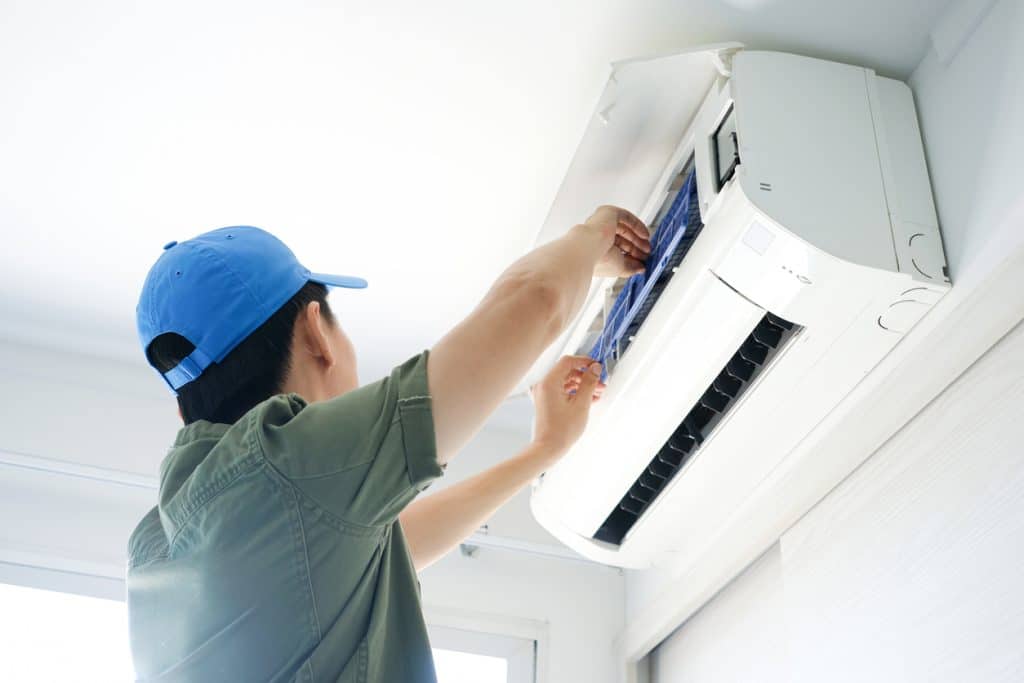AC unit replacement FAQs: everything homeowners ask
Wiki Article
The Value of A/c Knowledge: Revealing Reasons For A/c Issues for Home Owners
Homeowners commonly forget the importance of recognizing their a/c systems. Identifying usual indicators of a/c problems can result in timely interventions. Issues like not enough air conditioning or uncommon sounds are not just inconveniences; they can indicate deeper worries. By exploring the origin of these problems, home owners can boost system performance and extend its life expectancy. What are the most common concerns that can arise, and exactly how can they be effectively dealt with?Common Indicators of AC Problems
Exactly how can home owners recognize problems with their air conditioning systems prior to they rise? Identifying typical signs of AC troubles is crucial for prompt upkeep. One widespread indication wants cooling; if the cooling unit fails to decrease the interior temperature level, it might signify underlying concerns. Uncommon noises, such as grinding or hissing, can likewise indicate mechanical failings or loosened parts - Fix broken Air conditioner. In addition, home owners should watch out for unusual smells emanating from the unit, which could suggest mold development or electric issues. Constant biking on and off, called short biking, can suggest thermostat concerns or cooling agent leakages. A boost in energy costs without a corresponding surge in use might aim to inefficiency. By remaining sharp to these indication, home owners can protect against more substantial issues and costly fixings, guaranteeing their a/c systems operate successfully throughout the warmer months
Understanding Cooling Agent Issues
Refrigerant issues can significantly influence the effectiveness of an a/c system. Property owners need to understand the indications of low refrigerant degrees and the value of detecting cooling agent leakages. Resolving these problems promptly can avoid more damages to the system and assurance top cooling down performance.Low Cooling Agent Levels
A typical issue that homeowners may experience with their HVAC systems is reduced cooling agent degrees, which can considerably influence the system's efficiency and efficiency. Cooling agent is essential for the cooling process, taking in warmth from indoor air and launching it outside. When levels drop, the a/c unit struggles to cool the space properly, causing increased power intake and potential system pressure. Symptoms of low refrigerant include insufficient cooling, longer run times, and ice development on the evaporator coils. Homeowners might likewise observe unusual noises as the compressor works harder to make up for the deficiency. It is very important for house owners to recognize the relevance of preserving proper cooling agent degrees to assure peak heating and cooling efficiency and durability.Refrigerant Leaks Detection
Where might a house owner start when confronted with the opportunity of refrigerant leaks in their heating and cooling system? The initial step involves monitoring the system's performance. Indications such as minimized cooling efficiency, ice development on coils, or hissing sounds may show a refrigerant leak. Home owners must likewise look for visible indications of oil residue, typically an indicator of a leakage. Making use of a refrigerant leakage detector can supply even more exact recognition. If uncertainties linger, seeking advice from a qualified a/c technician is vital, as they possess the know-how and devices to situate leaks properly. Motivate detection and fixing of refrigerant leakages not only enhance system efficiency however also stop prospective ecological damage, making it a vital aspect of a/c upkeep.Electric Failures and Their Impact
Electric failures can substantially impact HVAC systems, specifically with concerns like circuit breaker breakdowns and defective wiring. These problems not just disrupt the system's efficiency however can additionally bring about expensive repair work and security threats. Comprehending the implications of such failures is vital for home owners to keep an effective and secure cooling and heating setting.Breaker Issues
Just how can circuit breaker problems influence the effectiveness of a heating and cooling system? Breaker act as important safety and security devices that take care of electric circulation to cooling and heating systems. If a circuit breaker journeys regularly, it disrupts power supply, leading to irregular home heating or cooling. This can trigger considerable strain on the system, leading to ineffective operation and possible damage to parts. Homeowners might discover boosted power expenses because of the HVAC system's battle to keep preferred temperature levels. Additionally, repeated disruptions from tripped breakers can shorten the life-span of the a/c unit, needing expensive repair work or replacements. Routine maintenance of circuit breakers is vital, as it ensures a steady power supply, eventually improving the total effectiveness of the HVAC system.Faulty Electrical Wiring Outcome
Frequently ignored, defective circuitry can have alarming consequences for heating and cooling systems. Circuitry concerns may lead to short circuits, leading to regular breakdowns and increased fixing prices. Furthermore, inappropriate wiring can create inefficient energy usage, bring about greater energy bills and pressure on the system. In serious instances, faulty wiring can cause electrical fires, presenting a substantial security threat to more info homeowners. In addition, these electrical failings can harm cooling and heating elements, resulting in costly substitutes or substantial repairs. Homeowners ought to focus on regular inspections by qualified experts to determine and remedy wiring problems prior to they escalate. Understanding the effects of faulty circuitry can aid guarantee the long life and safety and security of heating and cooling systems, inevitably safeguarding both the home and its passengers.Clogged Filters and Their Effects
While lots of house owners might ignore the value of routine filter upkeep, stopped up filters can cause substantial consequences for HVAC systems. When filters end up being obstructed with dirt, dust, and debris, air movement is restricted. This reduction in air flow forces the system to function harder, causing increased energy usage and potentially greater energy expenses. With time, this strain can trigger wear and tear on parts, leading to premature system failing.Additionally, stopped up filters can endanger indoor air high quality. Toxins and irritants might circulate throughout the home, worsening respiratory concerns and allergic reactions for residents. Additionally, inadequate air flow can cause the evaporator coil to ice up, bring about costly fixings and ineffective air conditioning efficiency. Routinely transforming or cleaning up filters is a simple yet necessary maintenance task that can help assure the longevity and effectiveness of heating and cooling systems, ultimately profiting both the home owner's comfort and their finances.

Thermostat Malfunctions Described
What happens when a thermostat breakdowns can significantly impact both convenience and power efficiency in a home (Fix broken Air conditioner). A defective thermostat might fall short to properly review the temperature, leading to overcooling or insufficient cooling. This disparity can cause discomfort for owners and result in higher power bills, as the cooling and heating system functions harder than necessaryTypical issues consist of dead batteries, which can make digital thermostats inoperative, and loosened circuitry that interferes with interaction between the thermostat and the HVAC unit. In addition, out-of-date or improperly adjusted thermostats might not respond correctly to temperature level modifications, even more intensifying energy ineffectiveness.
Home owners must be cautious for indications of breakdown, such as inconsistent here temperatures or unforeseen energy costs. Routine checks and understanding of the thermostat's performance can help recognize problems early, guaranteeing peak efficiency of the heating and cooling system. Dealing with thermostat problems without delay is important for keeping a comfortable living environment and managing power usage efficiently.
The Duty of Routine Upkeep
Normal maintenance plays a necessary role in ensuring the longevity and performance of a/c systems. Homeowners that prioritize regular checks can protect against small concerns from rising right into expensive fixings. Routine maintenance typically consists of jobs such as cleansing filters, evaluating ductwork, and inspecting cooling agent degrees. These activities help preserve excellent airflow and system performance, decreasing power usage.In addition, a well-maintained cooling and heating system operates much more efficiently, giving constant convenience throughout the home. Regular tune-ups can also extend the life-span of the unit, resulting in significant cost savings over time. Homeowners are motivated to schedule professional inspections a minimum of as soon as a year to determine potential issues early.
Additionally, several manufacturers call for routine maintenance to maintain warranties, making this practice not just beneficial yet usually needed. In general, understanding the relevance of regular upkeep encourages house owners to secure their cooling and heating systems versus unexpected failings and enhance their investment in home convenience.
Regularly Asked Concerns
Exactly How Can I Enhance My Ac's Power Performance?
Improving an air conditioner's power efficiency involves normal maintenance, cleansing or replacing filters, sealing ductwork, ensuring appropriate insulation, utilizing programmable thermostats, and scheduling professional evaluations to identify and fix potential issues influencing performance.
What Is the Life-span of a Typical A/c Device?
A typical air conditioning system has a life expectancy of 15 to two decades, depending on upkeep, usage, and ecological variables. Routine maintenance can considerably expand its functional get more info life and enhance general effectiveness.
When Should I Change My A/c System?
An a/c system need to typically be replaced every 10 to 15 years. Indications for replacement consist of constant fixings, rising power costs, and inadequate cooling, indicating that an upgrade may be much more affordable and effective.Can I Fix A/c Problems Myself?
Yes, people can troubleshoot a/c issues themselves by inspecting filters, guaranteeing power supply, and inspecting for visible issues (ac unit replacement). Complicated problems usually require professional aid for accurate medical diagnosis and safe fixing, ensuring ideal system performance.
Just how Do I Choose a Dependable Heating And Cooling Technician?

To choose a dependable cooling and heating technician, one need to seek suggestions, examine on the internet testimonials, confirm licenses and insurance policy, examine experience, and demand in-depth price quotes to assure top quality solution and reasonable rates prior to deciding.
Conclusion
To sum up, a solid understanding of a/c systems enables home owners to effectively identify and attend to usual air conditioning issues. Identifying indications such as poor air conditioning or climbing power costs enables timely interventions, which can considerably boost system efficiency and durability. By staying informed regarding potential problems like refrigerant leakages, electric failings, and stopped up filters, property owners can take proactive steps to keep their systems, inevitably guaranteeing comfort and advertising a healthier living setting. Regular upkeep continues to be essential to this undertaking.Report this wiki page